- Home
- Kay Hooper
The Glass Shoe Page 3
The Glass Shoe Read online
Page 3
“I told you not to worry about it. Everything’s set up on the contingency that he does try to find out. And anyway, we’re going to keep them both so busy they won’t have time to wonder about glass shoes or anything else.”
“Plan B?”
“No. No, I think we’re going to have to skip directly to plan C.”
—
Since the following day was Saturday, Ryder didn’t feel the need to go into his office. He often did work on weekends, but he also had an office set up in his house outside Boston. He was there on Saturday, but he wasn’t working. He was standing at the window, gazing out at a colorful profusion of fall leaves and wondering how in hell a man of his age and experience could be so idiotic.
As if pulled by a lodestone, he turned his back to the view outside and stared at his desk, where the symbol representing his idiotic thoughts rested.
A shoe.
A glass shoe.
He still couldn’t believe he’d picked the thing up, much less brought it home with him. Surely the woman didn’t think he’d be so besotted by one dance and a bit of moonlight in a garden that he’d lose his reason?
She didn’t really think he’d cling to his princely role like a moron and charge all over Boston and half the Northeast in search of one pair of dainty feet? Especially after she had mocked the very idea. And she certainly couldn’t believe that a couple of hours of conversation—fascinating conversation—and one kiss—an admittedly fiery kiss—could inspire in him a devotion so complete that he’d overlook the transparent ploy to gain his attention?
And it was a ploy, of course. What else could it be? Mysterious Cinderella shows up, uninvited, according to her, dances with Prince Charming and walks with him in the moonlight, melts in his arms for one kiss—one admittedly fiery kiss—and then flees before midnight.
Leaving a glass slipper on the front steps.
Questioned, the parking valet for the ball had said Cinderella’s coach was a white limo. The modern version of a pumpkin and six white mice, Ryder assumed. But, sorry, sir, the valet hadn’t noticed the tag number or anything memorable about the driver. The butler had not admitted her, he claimed, and so had seen no invitation.
After that Ryder had given up, drawing a mental line at questioning his co-host or the other guests. He wasn’t, he’d told himself, that far gone.
He kept expecting somebody to offer the punch line of the damned joke.
He’d had a few lures cast out to him in his time, some of which had been rather creative, but women tended to be far more straightforward these days. He couldn’t believe that any woman would go to the trouble and expense of a costume and rented limo just to rouse his interest. It was absurd. It was ridiculous.
It was working.
“Idiot,” he muttered aloud to himself in the empty room, and went to his desk. He picked up the shoe and examined it minutely, as if he hadn’t done it before. Just a pump-style woman’s shoe made of glass. Water cushions in the bottom, fashioned in clear plastic. There was no logo or label anywhere, nothing to indicate the maker’s name or business location.
But from how many places could one rent—or buy—glass slippers?
Ryder went around the desk to his chair and sat down, placing the shoe to one side. He looked up the number of the costume shop where his infamous tights as well as the rest of the costume had been rented, and placed a call.
The shop was open and likely doing a brisk business in returning costumes after the masquerade. Ryder asked for the manager, then waited and silently repeated to himself that he wasn’t being at all idiotic about this.
“Yes, sir?” the manager inquired politely.
Deciding not to identify himself, Ryder merely asked, “Do you rent Cinderella costumes?”
“Yes, sir. We have three in stock; they’ve just come back in today. If you’d like—”
“Are any of them missing the shoes?” He made the question as cool as possible.
The manager showed signs of losing his. “Shoes? No, sir. The costumes were returned just as they were picked up yesterday.”
“So you have three pairs of glass shoes in stock?”
“Glass? Oh, no, sir. The ladies don’t like glass. Dangerous, if I may say so. And too uncomfortable.”
Ryder resisted the impulse to tell him about shatterproof glass and water cushions while he gazed at what was definitely a glass shoe on his desk. “Cinderella wore glass slippers,” he reminded the manager, trying not to laugh at his own absurdity in this.
Badly rattled by now, the manager said, “Well—um—we use fabric or leather shoes covered with sequins. They sparkle like glass.” He seemed a bit aggrieved at the implied aspersion on the store’s reasonable facsimile of a difficult concept, as if to say they’d done the best they could after all.
“I see.” Ryder cleared his throat and kept his own voice brisk. Given any luck at all, the poor man wouldn’t think he was dealing with someone with a foot fetish. “I assume your costumes were rented for the masquerade at Brewster House last night?”
“Most of our costumes were,” the manager admitted.
Ryder dropped his voice to a confidential note. “The thing is, I believe one of my friends played a trick on me last night, and she was in a Cinderella costume. Do you understand?”
“Of course, sir,” the manager replied, still clearly at sea over the matter.
“Good. Now, what I need to know is whether my friend rented her costume from you. So, if you could—”
“I’m sorry, sir.”
Dear Lord, was he going to have to go there in person? With visions of bribes and the like dancing in his head, Ryder said, “Look, even if your records are confidential—”
“It is against company policy to make our records available to anyone, sir, but that isn’t the problem in this case.”
“Then what is?” Ryder demanded.
“The, uh, size of the young lady’s deposit made it possible for one of our clerks to ignore procedure, sir. Since the amount covered replacement of the costumes if necessary, there was no need to, uh, take the young lady’s name.”
“A cash deposit?”
“Yes, sir.”
Quite an investment, Ryder thought, and then suddenly realized what he’d been told. “Wait a minute. You mean one young lady rented all three Cinderella costumes?”
“Yes, sir.”
“Do you remember what she looked like?”
The manager cleared his throat. “The circumstances made me notice her, sir. But I’m afraid I can’t tell you much about her. It was a windy day; she wore a scarf over her hair, and a rather bulky coat. And sunglasses. And she, um, arrived in a limousine.”
“A white one?”
“No. Black.”
“Dammit,” Ryder muttered.
“I beg your pardon, sir?”
“Nothing. When did she rent the costumes?”
“Months ago. Just after the ball was announced.” Somewhat apologetically, as if it were a slur cast on himself, the manager added, “No one else had indicated interest in Cinderella so early, you see.”
“The ball,” Ryder said, “had a fairy-tale theme.”
“Um, yes, sir. But it was early. And we had very few requests afterward. Today’s women seem to resist that particular fairy tale.”
“That’s what you think.”
“Sir?”
“Nothing. Well, thanks for your help.”
“Yes, sir. Anytime.”
Ryder cradled the receiver and then stared at the glass shoe on his desk. “Curiouser and curiouser,” he murmured. Then, with a determined air, he consulted the Yellow Pages and made a list. He’d check the costume shops first, he decided. Then the shoe stores. Glass shoes were apparently rare beasts, and somebody had to own up to having made, rented, or sold a pair.
He shook his head at himself, and began calling.
—
In the heart of Boston a harried store manager looked up from a neatly typed list of in
structions and gave his grinning assistant a somewhat wild-eyed glare. “Those Wilderman girls,” he said definitely, “will be the death of me!”
“Wonder what they’re up to?” the assistant mused.
“I don’t know, and I don’t want to know.” The manager tore his list in half.
“Better not,” the assistant offered. “He might call again.”
The manager looked at the phone as if it might rear back and bite him any minute. He moaned. “Oh, Lord help me.”
—
Amanda Wilderman spent the following week wishing she’d never committed the utter stupidity of reading fairy tales to her cousins when they were little girls. Because little girls, she decided grimly, grew into bigger girls with minds warped from fairy tales.
It was only small things at first. Subtle things. Her bookmark replaced by one displaying a frog and words to the effect that it was sometimes necessary to kiss a number of toads before discovering a prince. An illustrated volume of fairy tales left on her bed. A tape that just happened to be one of the filmed versions of Cinderella in the VCR playing as she entered the room.
But when a recent business publication with a full-color photo of Ryder Duncan Foxx on the cover just happened to find its way into her lingerie drawer, Amanda had had enough.
She knew her cousins too well to attempt to stop them. No, she decided, escape was the only possibility. Years of Samantha and Leslie’s peculiar high jinks had taught her nothing if not that her cousins would weary of their new game and give up—eventually.
Besides, Amanda wanted to get away for her own sake. She caught herself thinking too often of moonlit gardens and tinkling fountains. And kisses. She caught herself wondering if he’d found the shoe, and tossing in her bed at night because even if he had, the man certainly hadn’t been bewitched enough to launch some harebrained search…
And, because of all this, she was feeling a bit wild when she burst into her uncle’s study exactly one week after the cursed ball.
“I’m leaving,” she announced.
Edward Wilderman looked up from his cluttered desk, surveyed his niece for a moment, then asked mildly, “Where are you going?”
“I don’t know yet,” she admitted, calming down.
“They’re still inundating you with fairy tales?”
“You don’t miss a thing, do you?”
“It’s safer that way,” he admitted.
“That damned masquerade,” she muttered. “I’ll never hear the end of it, at least until they’ve gotten it out of their systems. I have to get away.”
He hesitated, then said, “Vacation, or do you want to be busy?”
Amanda dropped into one of the leather chairs before his desk. “I want to be busy. Say you have something for me to do, Uncle Ed.”
He smiled at her, a man in his early forties with graying copper hair and bright green eyes. He had welcomed Amanda into his home when his brother and sister-in-law had been killed, had raised her and treated her as he had his own daughters. And he had been very glad of her presence and quiet strength when his wife had died five years before.
Now, gazing at Amanda across the desk, he wished he had some words of wisdom to offer her. There was a shell surrounding her now, one that hadn’t been there ten years earlier and, he thought, would become unbreakable in time. It troubled him deeply to watch her fiery spirit become trapped in a cage.
Poor little rich girl. Amanda would be the first to mock herself. But Edward knew only too well that extreme wealth was a burden, especially to a young and beautiful woman.
But he might not have given in to Samantha’s pleas even then, except that he had developed a somewhat rueful faith in his elder daughter’s schemes. She had a disconcerting habit of pulling off the most unlikely strategies, and he never knew whether to laugh or be absolutely appalled. Leslie would no doubt have been horrified at how much their father knew, but Sam had always confided in him about her plans, however absurd they appeared to be, and he trusted—and prayed—she always would.
“Uncle Ed?”
He made up his mind. “Sorry, honey. I was wondering if you’re up to this.”
“Tell me, and we’ll find out.”
“All right. I mentioned that ranch in Wyoming?”
“The one you’re trying to put in the black? Sure.”
“Well, the repairs and remodeling have reached the point where I need someone on the spot to oversee the decorations, a manager, really. I’d planned to hire a decorator, but I’m a bit wary of whatever trend is currently popular, especially after that fiasco you had to straighten out for me at the inn last year.”
Amanda smiled. “Starkly modern decorations did look a bit out of place in a Vermont inn.”
Edward winced. “I’ll say. And you did a beautiful job with that place, Amanda. Still, this ranch house will be a tough job. It could take months. You might even find yourself snowed in out there.”
“I’ll take lots of books,” Amanda said.
“Thanks, honey, I really appreciate this. Now, do you want to be the boss’s niece, or a professional there simply to do a job?” He wondered if he was laying it on too heavily; she wasn’t a fool.
Amanda was thinking of how pleasant it had been to be someone else. “A professional, I think,” she said slowly. “I’ll use Mother’s name. Since you had that duplicate identification fixed up for me, I’ll have a driver’s license, checkbook, and credit cards in the name of Trask.”
“Good, that’s fine. Now, we can go over a few things quickly, and then you can start packing. I do hope,” he added politely, “that you aren’t planning on catching the first westbound plane.”
She grinned at him. “Monday will be soon enough—if, that is, you can keep Sam and Les away from me.”
“I will do my poor best.”
Amanda eyed him. “Uh-huh. Confess. You have a sneaking admiration for Sam’s schemes.”
“Admiration?” Edward thought about it for a moment, then said judiciously, “She absolutely terrifies me.”
—
Samantha hung up the phone and stared at it as though it had become a very puzzling and contrary instrument.
“Well?” Leslie demanded.
Tucking a strand of copper hair behind one ear, Sam focused bemused green eyes on her sister. “I don’t get it.”
“You don’t get what? That was Ryder Foxx’s secretary you were talking to, wasn’t it?”
“Yes.”
“Well, where is he?”
“He is,” Sam said slowly, “en route to Wyoming. Seems he’s going to spend a couple of weeks or so out there on a ranch.”
“Our ranch?”
Samantha nodded.
“Hey, you did it!” Les exclaimed.
“No. I didn’t.”
Leslie leaned back against the headboard of the bed and stared at her. “What d’you mean, you didn’t?”
“I didn’t send him out there. Les, I’d only just figured out a possible way to do it. But when I called to see if he was in today…well, he wasn’t. He’s already on his way to the ranch, and I didn’t send him.”
The sisters stared at each other for a long moment and then Samantha smiled.
“Sort of makes you believe in fate, doesn’t it?”
—
The Broken R Ranch was north of Casper, Wyoming, the ranch house proper located about fifty miles from the city. Amanda rented a car as soon as she arrived and set out for the ranch, mentally going over the information her uncle had provided for her. The Broken R had originally been part of the Patterson spread, a somewhat legendary ranch occupying hundreds of acres but known mostly for its rather eccentric family.
The last surviving member of that family, Helen Patterson, had moved out of the ranch house more than twenty-five years before, divided her land in half, and built a new house for herself nearby. She’d sold her old home but, Edward Wilderman had discovered, had kept an eye on the place.
Under new ownership the Broken R had
managed to show an occasional profit as a dude ranch, but Edward’s offer had been accepted with alacrity. No money had been spent on the place for more than a decade, which meant that Edward’s renovation plans were extensive.
Amanda knew that most of the major structural repairs had been completed, but there was still enough to be done that Edward hadn’t planned to officially welcome guests until mid-summer of the following year. But a half dozen guests had already made reservations when he took over the place, and all were scheduled to arrive in the next few days.
Edward Wilderman had explained the repairs by letter and offered to return deposits, but none had taken him up on it. It was a hardy breed, her uncle had said with a grin, who would choose to vacation in Wyoming on the edge of winter, so there was no need to disappoint them.
Amanda was pleasantly surprised to find the exterior of the house looking so inviting, but once she went inside, she discovered that fresh paint over new siding covered a multitude of sins.
It was a big, sprawling place, built more than fifty years before, when large families had been the norm. The central section was a square three-story-high structure of wood siding with a steeply pitched roof; two wings built of river rock stretched out behind it with an overgrown garden between them. Both wings boasted only one floor, but there were a considerable number of rooms in each.
Only the central section of the large ranch house was even habitable, the rest being made treacherous by ladders and lumber and a crew of busy carpenters. And even the central section was unfinished, a number of rooms bare and smelling strongly of paint or plaster. That meant Amanda and the skeleton staff of cook/housekeeper and a single maid had limited space to work with to meet the needs of the half dozen guests expected within the next few days.
Strictly speaking, it wasn’t Amanda’s job to help deal with the domestic chores, but since the workmen needed to make more progress before she could begin her own tasks, she was more than willing to help out. She paused only briefly after arriving to unpack just a few things before pitching in.
It wasn’t until she was going over the list of guests in order to assign them rooms that she saw, with horrified eyes, the trick fate had played on her.

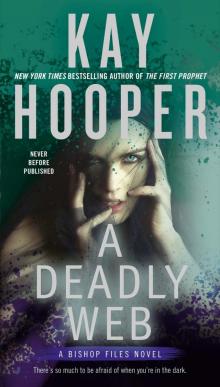 A Deadly Web
A Deadly Web Raven on the Wing
Raven on the Wing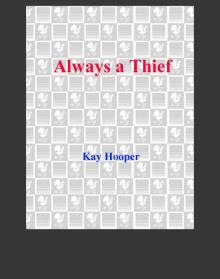 Always a Thief
Always a Thief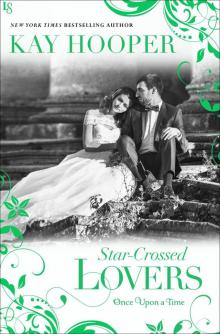 Star-Crossed Lovers
Star-Crossed Lovers Blood Dreams
Blood Dreams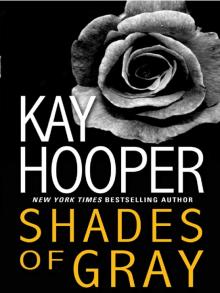 Shades of Gray
Shades of Gray Rebel Waltz
Rebel Waltz Chill of Fear
Chill of Fear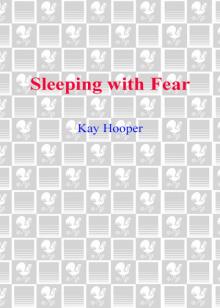 Sleeping With Fear
Sleeping With Fear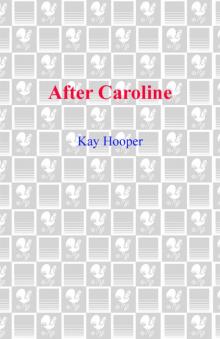 After Caroline
After Caroline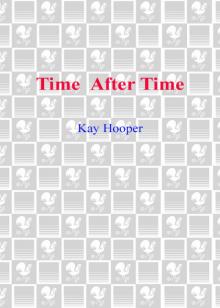 Time After Time
Time After Time Haunting Rachel
Haunting Rachel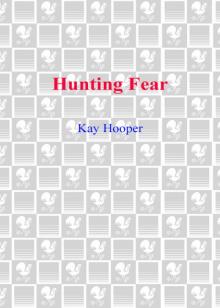 Hunting Fear
Hunting Fear Out of the Shadows
Out of the Shadows Whisper of Evil
Whisper of Evil Blood Sins
Blood Sins Hiding in the Shadows
Hiding in the Shadows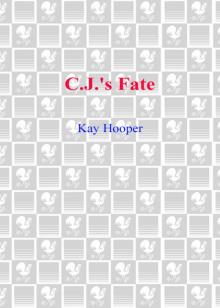 C.J.'s Fate C.J.'s Fate C.J.'s Fate
C.J.'s Fate C.J.'s Fate C.J.'s Fate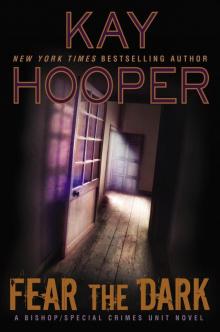 Fear the Dark
Fear the Dark Illegal Possession
Illegal Possession Stealing Shadows
Stealing Shadows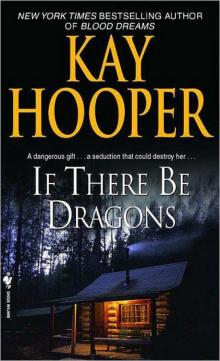 If There Be Dragons
If There Be Dragons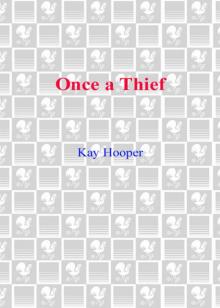 Once a Thief
Once a Thief In Serena's Web
In Serena's Web On Wings of Magic on Wings of Magic
On Wings of Magic on Wings of Magic Hostage
Hostage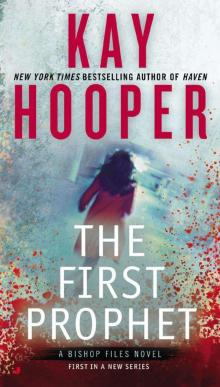 The First Prophet
The First Prophet Through the Looking Glass
Through the Looking Glass Golden Flames
Golden Flames Finding Laura
Finding Laura Haven
Haven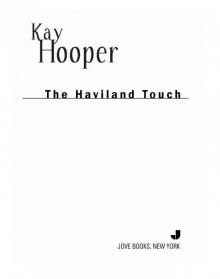 The Haviland Touch
The Haviland Touch The Lady and the Lion
The Lady and the Lion Haunted
Haunted Velvet Ligntning
Velvet Ligntning Blood Ties
Blood Ties Adelaide, the Enchantress
Adelaide, the Enchantress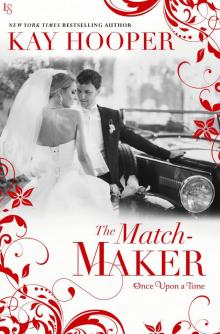 The Matchmaker
The Matchmaker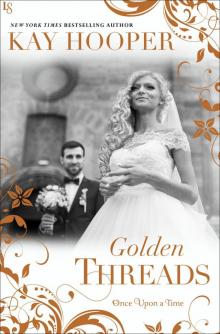 Golden Threads
Golden Threads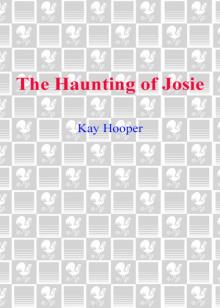 The Haunting of Josie
The Haunting of Josie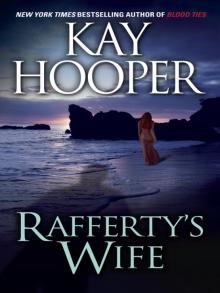 Rafferty's Wife
Rafferty's Wife Amanda
Amanda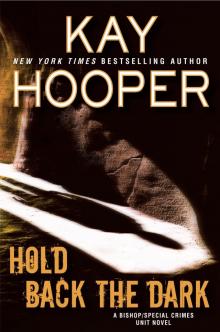 Hold Back the Dark
Hold Back the Dark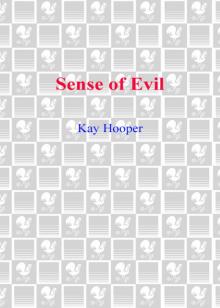 Sense of Evil
Sense of Evil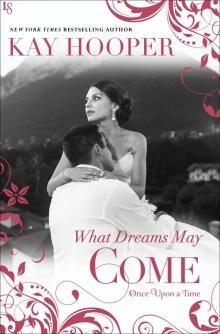 What Dreams May Come
What Dreams May Come Larger Than Life
Larger Than Life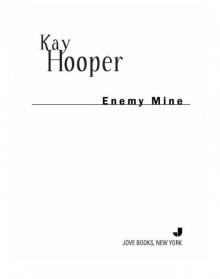 Enemy Mine
Enemy Mine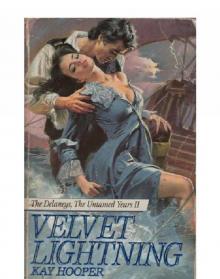 Velvet Lightning
Velvet Lightning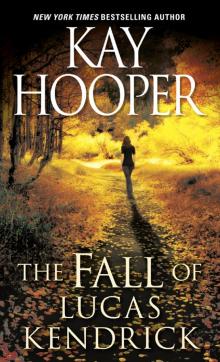 The Fall of Lucas Kendrick
The Fall of Lucas Kendrick Aces High
Aces High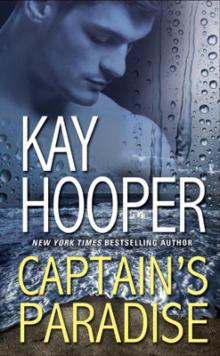 Captain's Paradise: A Novel
Captain's Paradise: A Novel The Wizard of Seattle
The Wizard of Seattle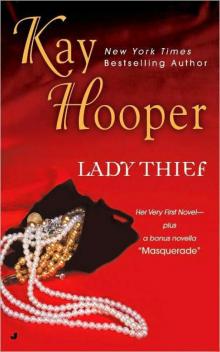 Lady Thief
Lady Thief Summer of the Unicorn
Summer of the Unicorn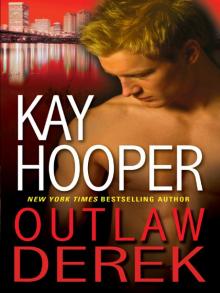 Outlaw Derek
Outlaw Derek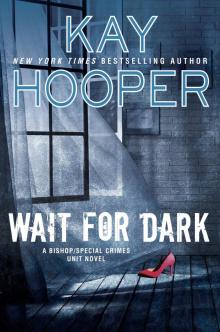 Wait for Dark
Wait for Dark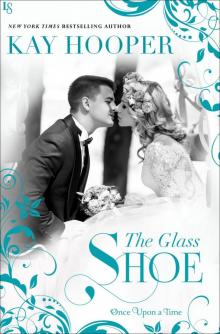 The Glass Shoe
The Glass Shoe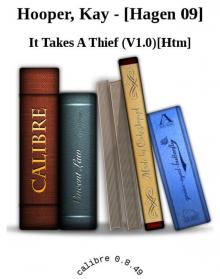 It Takes a Thief
It Takes a Thief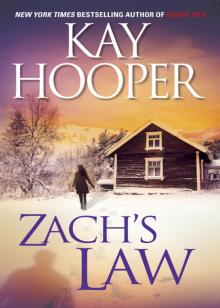 Zach's Law
Zach's Law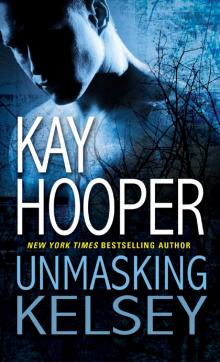 Unmasking Kelsey
Unmasking Kelsey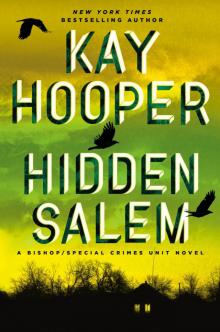 Hidden Salem
Hidden Salem